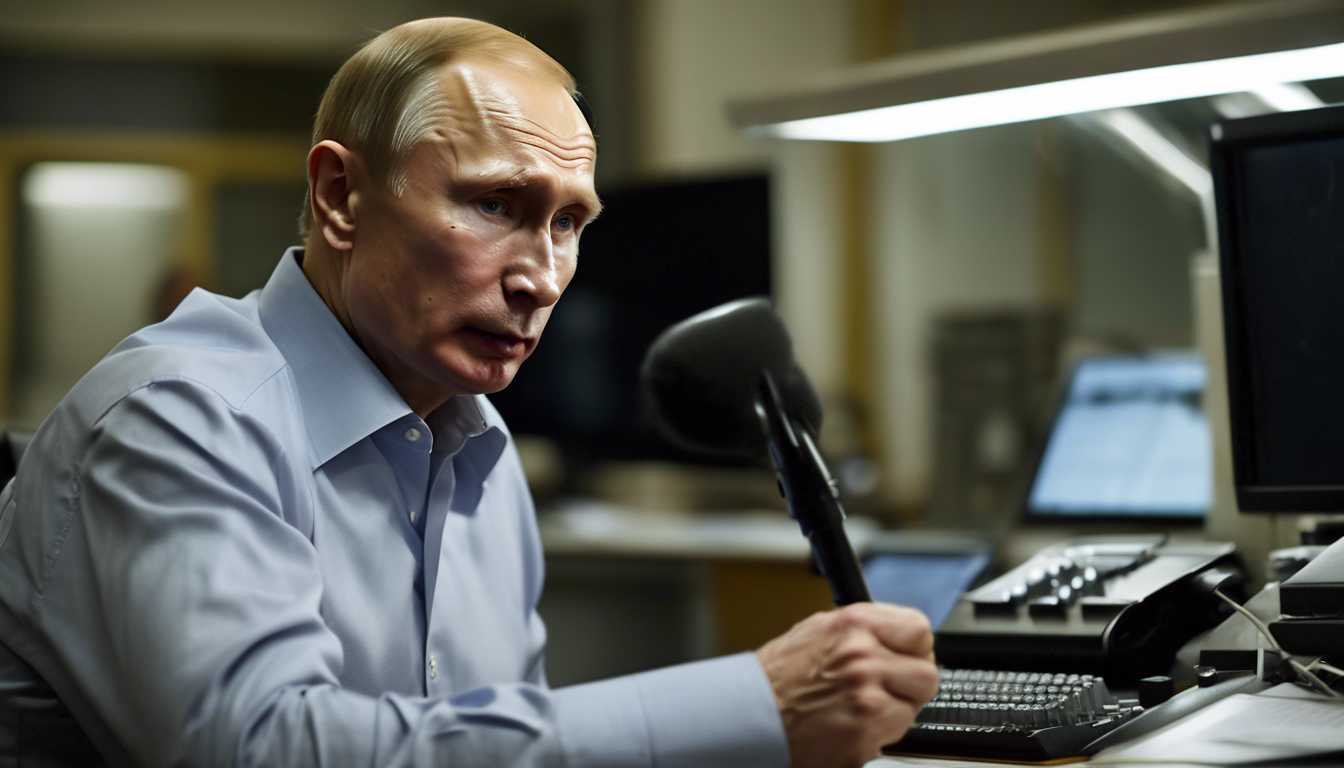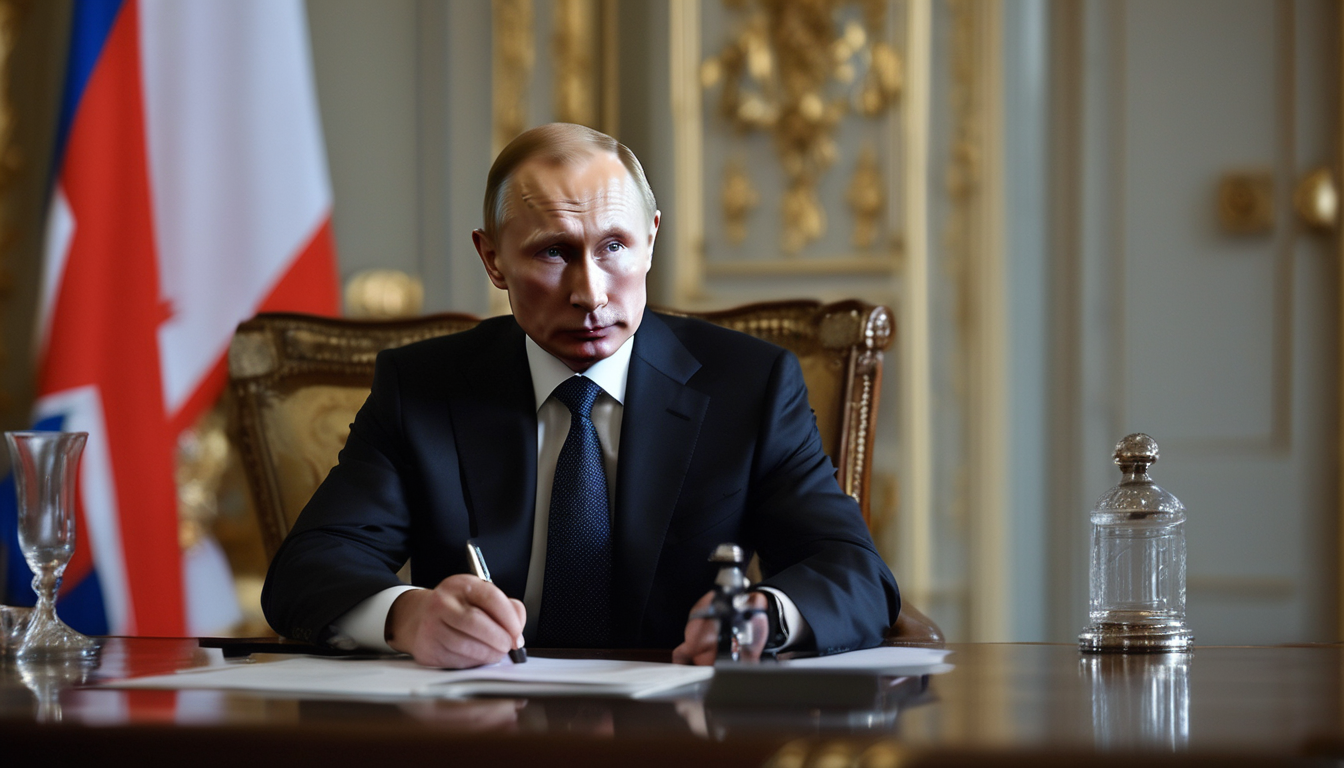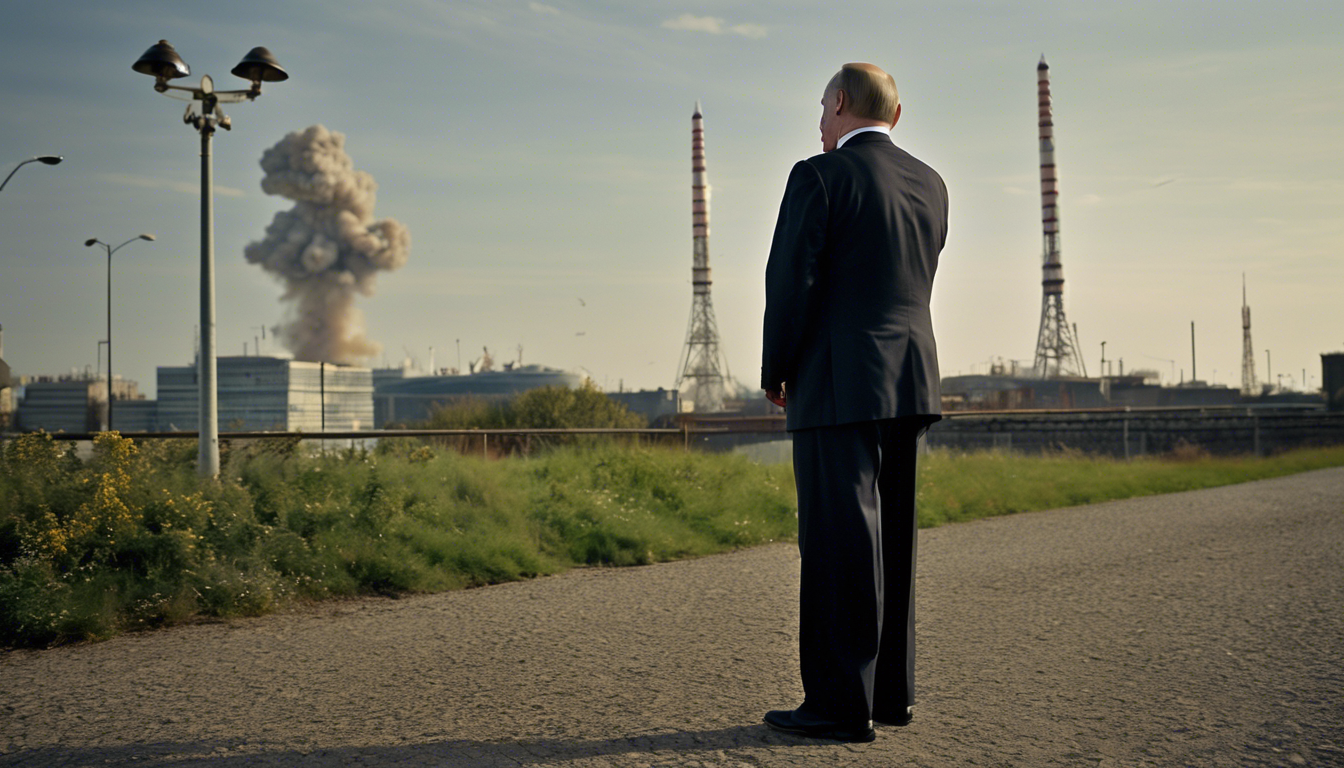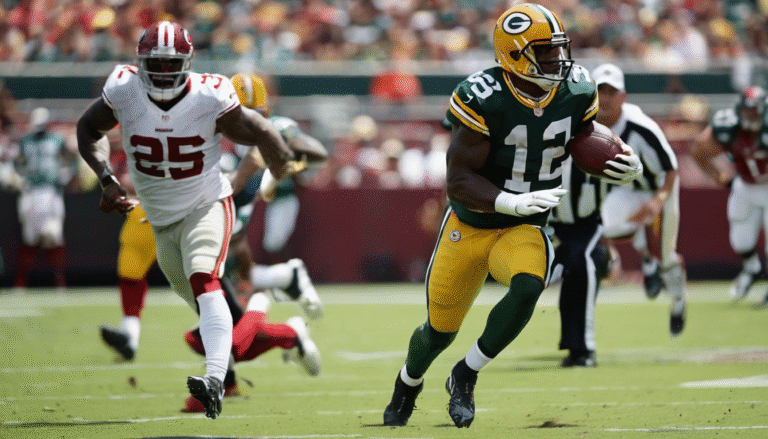
Vladimir Putin’s top state TV propagandist, Vladimir Solovyov, has issued a threat calling for Britain to be “sunk underwater” using Russia’s Poseidon nuclear torpedo. This escalates tensions between Russia and the UK as Putin demands NATO halt its expansion and rejects Western peace negotiations.
Background
The Poseidon nuclear torpedo, also known as an underwater drone, is an alleged “super weapon” equipped with nuclear warheads capable of reaching 100 megatons. It reportedly cruises at 115 mph and functions at depths exceeding 3,000 feet, posing significant risks if deployed.
Kremlin spokesperson Vladimir Solovyov is known for making millions by parroting Moscow’s official messaging. His inflammatory remarks are part of a broader narrative of Russian defiance against NATO and Western support for Ukraine.
The tensions come amidst the ongoing war in Ukraine, which has been raging for nearly four years, resulting in hundreds of thousands of casualties. Putin has repeatedly insisted on the “complete nonsense” of aggression claims against Russia, while Solovyov has made more extreme comments supporting military action.
Key Developments

Vladimir Solovyov has called for the UK to be targeted by the Poseidon nuclear torpedo, specifically to test the weapon’s destructive capabilities. This threat is part of a broader and increasingly aggressive rhetoric from Putin allies.
- Solovyov proposes using Britain for testing the Poseidon weapon.
- Putin previously insisted he had “no desire to attack anyone.”
- Kremlin spokesperson claims the torpedo has a range exceeding 3,000 feet.
- Putin has rejected peace negotiations proposed by Donald Trump.
The latest threat comes days after Putin dismissed Western concerns about Russia’s aggression, stating that such claims have “absolutely no basis.” Solovyov’s remarks are more confrontational, indicating a hardening stance against Western partners.
Industry/Market Context
The development and deployment of advanced nuclear weapons technology like Poseidon raise significant ethical and geopolitical concerns. Such weapons could potentially unleash unimaginable destruction, prompting questions about their use in warfare and compliance with international laws.
The arms industry plays a crucial role in developing and disseminating advanced military technologies. Companies involved in nuclear weapons production and deployment face increasing scrutiny over the potential consequences of their products.
Geopolitical tensions resulting from aggressive rhetoric and military threats can affect global trade, investment, and diplomatic relations. The ongoing conflicts in Europe have already led to economic sanctions, disrupted supply chains, and increased energy prices worldwide.
Implications & Risks
Threats of nuclear weapons use against NATO members risk escalating into full-scale conflicts, potentially involving multiple nations and leading to catastrophic destruction. Such actions could also further destabilize an already volatile region.
The development and deployment of advanced nuclear weapons like Poseidon raise ethical concerns about the potential for nuclear proliferation. Increased availability of nuclear weapons could empower more nations to develop their own arsenals, exacerbating global security risks.
The escalating verbal aggression from Putin and his allies could jeopardize ongoing peace negotiations and diplomatic efforts aimed at resolving conflicts in Ukraine and other parts of Eastern Europe. It highlights the challenges in achieving a lasting ceasefire and ensuring long-term stability.
What’s Next

International stakeholders are likely to respond to these threats with increased pressure on Russia to tone down its rhetoric and engage in constructive dialogue. Nations may impose additional sanctions or take military postures to deter potential aggression.
The ongoing war in Ukraine and Putin’s demands for NATO expansion to halt suggest prolonged conflict with potential for further escalation. Diplomatic efforts and international condemnation are likely to continue as parties attempt to de-escalate tensions.
Global leaders and security experts will monitor the situation closely, advocating for peaceful resolutions and international cooperation to mitigate risks associated with nuclear weapons threats and geopolitical tensions in Europe.
These developments underscore the complex and volatile nature of international relations in a rapidly changing geopolitical landscape. The use of aggressive rhetoric and nuclear threats highlights the importance of diplomatic channels and de-escalation efforts to maintain global stability.






